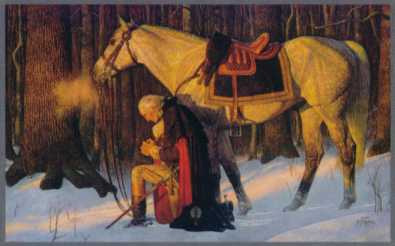Cubans and the 4th of July
This is a little known and very interesting aspect of the American Revolutionary War.
By Antonio Benedi
WashingtonTimes.com
The people of Cuba have a long history of respect
and support for the United States. The national
pride of a Free Cuba lives in every freedom-loving
Cuban alive. Many Cubans bravely fought on U.S. soil
in the War of Independence.

Cubans, as a people, helped raise much-needed funds
for the Revolutionary Army of George Washington. The
“Havana’s Ladies,” a group of Cuban mothers, heard
General Washington’s plea for desperately needed
funds and raised an astonishing amount for that
time. They sent to Virginia the equivalent in
today’s money of $28 million. This has received
little exposure in American history books, but is
well documented. The inscription that the “Ladies of
Havana” wrote on their contribution was:
“So, the American mothers’ sons are not born as
slaves.”
The pledge of the Havana ‘s Ladies, remained very
little known, with the exception of an American
historian Stephen Bonsal, who wrote: “That
sum collected [by the Havana ‘s Ladies] must be
considered as the ground whereon was erected the
American independence.”
Gen. Jean Baptiste de Rochambeau wrote in his “Daily
Memoirs,” available in the Library of Congress: “The
joy was enormous when it was received, the money
from Havana: The contribution of 800,000 silver
pounds which helped stop the financial bankruptcy
(of the Revolutionary Army) and raised up the moral
spirit of the Army that had begun to dissolve.”
Carmen Maria Rodriguez has also done research into
this chapter of the Revolutionary war. She writes:
This July 4th, New York will be scenario of the
largest maritime event in the history of humankind.
In this regard, the city, and the nation are
outdoing themselves to stage along with simultaneous
fireworks, one of the most impressive displays of
popular joy and freedom ever staged commemorating a
nation’s freedom.
Being Cuban born and living within sight of the
Statue of Liberty, I cannot help but think of who
and what made this possible. My mind races back to a
demonstration held in New York by Cuban Americans
when someone handed to me a piece of paper in which
the former US Ambassador to Cuba Stephen Bonsal
wrote, “The Contribution of Cuban women by way of
their jewelry, could very well be the foundation on
which is founded, the freedom of the United States.”
Bonsal, having lived in Havana, also penned a book,
“When the French were here”.
A friend of mine, Tirso Gonzalez, veteran of the
2506 Brigade, once heard me talking about this case,
and both he and I sent out to investigate in the NY
Public Library if this indeed was true. This is what
we both found out: General George Washington had a
dream to liberate the colonies from the English. He
also had a band of mercenaries whom to pay, since he
relied on these types of soldiers to wage the war
which he felt was just and necessary.
The French were here in the colonies helping out,
and given that there was no money to finance the
mercenaries or the war, Lafayette commanded the
frigate known as “L’Aigrrette,” to travel first to
Cadiz, Spain, to see if money could be gotten. To no
avail, the Spanish in Cadiz were very kind but not
financially forthcoming. The ship then went on to
Saint Domingue, what is now Haiti, and what was then
the riches of all colonies given the enormous wealth
to be had in
the sugar industry. The French there told the French
on the ship, “Nous n’avons pas d’argent”, in other
words, there would be no money from Saint Domingue
sent to Washington. L’Aigrette then set sail to the
Port of Havana to obtain water and supplies to
return up to Virginia.
It was there that word got out, that Washington
needed funding to stage a battle which was at the
time only in the planning stage. Women, girls, from
Havana, to Matanzas to Pinar del Rio gave freely of
their jewelry, the French even documenting that they
disposed of their diamonds, to help Washington in
his quest for freedom and his financing of his
mercenaries.
The women of Cuba came forth, knowing that this was
a just cause, giving up of their only wealth, which
was their gold, to assist the love of independence
of another nation.
When L’Agraitte set sail and arrived in September of
1781 in Virginia, General Washington upon knowing
that there was sufficient financing of over
1,200,000 pounds of Cuban gold, silver and diamonds,
historians point out that he lost his usual sedate
composure and threw his hat in the air from sheer
joy.
Cuban Women’s Contribution to the cause of American
Independence thus made possible the financing of the
decisive battle of American Independence, known as
the American Revolution, on 31 October 1781, that
General Cornwallis of England, had his sable turned
over to General Washington, as a sign of surrender
of the English to a band of dreamers known as the
Founding Fathers of the United States of America.
“May God bless the children of these Cuban women who
loved their own freedom, but knew that the cause of
liberty and justice is one to be pursued at all
costs everywhere in the world where there is need
for such a state of affairs.”
When New York rejoices this Fourth of July, I too in
a way shall rejoice doubly, since it was our Cuban
ancestors, and despite all the disdain for this
land, that made possible, the freedom and bounty of
so many. And by writing this, I hope to start waking
up people’s minds that Cubans even today as in 1781
maintain their unique tradition of defending freedom
above all else.
Benedi is a former special assistant to President George Bush and serves on the board of directors of the Patrick Henry Center for Individual Liberty.

